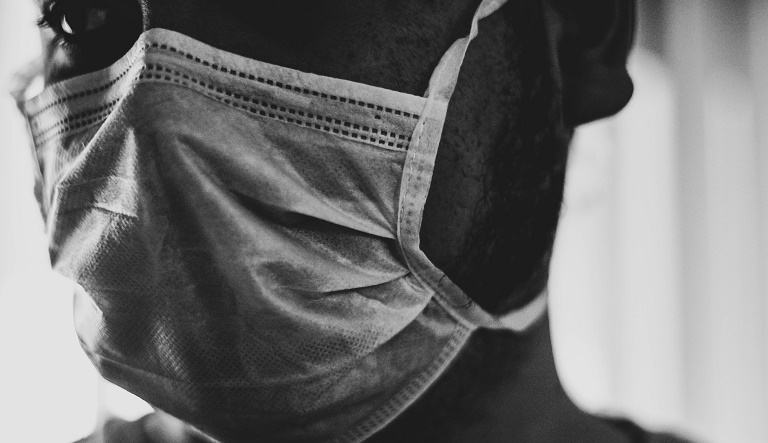
A new study published by physician-researchers at the Wayne State University School of Medicine in Detroit has revealed that Blacks are likely dying more often from COVID-19 than their Caucasian counterparts because of systemic racism.
The finding was announced in “Elevated COVID-19 Related Mortality Risk Among Hospitalized Inpatients from Socially Vulnerable Census Tracts,” published April 6 in EClinical Medicine, an open access clinical journal by The Lancet.
The project examined relationships between census tract social vulnerability characteristics and COVID-19 in-hospital mortality in the large urban health system of hospitals that predominantly serve African Americans in greater Detroit. Mortality risk was elevated among patients from census tracts that were flagged by the U.S. Centers for Disease Control and Prevention Social Vulnerability Index for socioeconomic vulnerability, such as poverty, unemployment, low per capita income and/or low high school diploma rates greater than 90th percentile vulnerability. By contrast, there was no relationship between COVID-19 mortality and race.
Teena Chopra, M.D., M.P.H., professor of Internal Medicine, Infectious Diseases, is the senior author of the study, which she called the most difficult research she has ever worked on.
“Our findings prompt us to infer that Black people in large urban centers who access hospital care and test positive for COVID-19 are not inherently at elevated risk of COVID-19 mortality. Rather, our results support the possibility that socioeconomic vulnerability and its correlates, including upstream facts like systemic racism – and what might be related downstream factors – like chronic diseases, and not race per se, explain the elevated mortality risk in our sample,” she said. “Systemic racism is implicated because we feel it shapes the circumstances and policies that are responsible for the inequitable distribution of resources across communities of color.”
Adult patients who presented to emergency departments and tested positive for COVID-19 from March 11, 2020, to April 18, 2020, were included in the analysis. A total of 1,015 adults tested positive for COVID-19 during the study period, with 80% identifying as Black, 52% male and 53% older than 65. Patients from census tracts that were flagged for vulnerability related to socioeconomic status had a higher mortality rate than their peers who resided in less vulnerable census tracts.
Even before the study started, elevated mortality rates had been reported during previous infectious disease outbreaks and pandemics in areas with high poverty rates, racial segregation and low education attainment. U.S. reports have implicated chronic disease history and poverty as risk factors for COVID-19 related mortality, Dr. Chopra said, yet there is a dearth of information about predominantly Black populations in densely populated urban cities.
Dr. Chopra is corporate medical director of Infectious Disease Prevention and Hospital Epidemiology and Antibiotic Stewardship at WSU and the Detroit Medical Center.
“This research was done in the midst of a pandemic when Detroit had a tsunami of COVID-19 cases. The fact that I was leading the campaign for my hospital was hard enough. But the research was extremely critical to help inform important decisions and help improve the quality of care. Also, this research has been tremendously helpful in prioritizing our vaccination efforts to the most vulnerable populations like nursing homes,” Dr. Chopra added.
As of April 29, 17,576 Michigan residents have died from COVID-19, with 2,009 of those deaths in Detroit, according to the Detroit Health Department’s online COVID-19 dashboard. And, 81.1% of those who died in Detroit were Black, and more than half were more than 70 years old. Four nursing homes in the city have had at least 25 residents each die since the pandemic began.
“The huge mortality that we saw in Detroit was extremely surprising. This was mainly coming from our most vulnerable nursing home residents. It highlights the importance of stronger infection control programs in nursing homes,” Dr. Chopra said.
Michigan is now in the midst of a third surge in COVID-19 cases, predominately due to the highly contagious variant strain of the virus. That doesn’t mean that vaccines should be skipped or masks tossed, Dr. Chopra implored.
“Vaccines have been a major breakthrough this year and its very important that we educate our community to get vaccinated as soon as possible. Vaccination and masks together are going to help us reach the finish line,” she said.
The study team included Associate Professor of Family Medicine and Public Health Sciences Steven Korzeniewski, Ph.D., who leads the epidemiology section of the Biostatistics and Epidemiology Research Design core housed at WSU’s Integrative Biosciences Center; Assistant Professor and Clinical Educator in the Department of Internal Medicine’s Division of Infectious Disease Avnish Sandhu, D.O.; Professor and Associate Chair of Research in the Department of Emergency Medicine Philip Levy, M.D., M.P.H.; and Distinguished Professor of Internal Medicine and Infectious Disease physician and researcher Jack Sobel, M.D., among others.